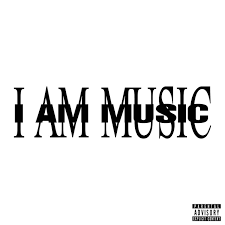Are AP Classes Worth it?
AP classes have many benefits, but are they worth the stress for everyone?
February 11, 2018
In the past few years, Erie high school, among other public schools, has heavily encouraged AP classes, advertising the many advantages, especially the college credits you can earn. But with so much pressure to take these college-level courses, have students and teachers alike ever questioned the downsides to them?
In no way do I discourage kids from taking AP classes. However, I ask those who crumble under the weight of the rigorous curriculum and only partake in the course due to pressure, if it is worth taking a toll on their physical and mental health. As someone who takes one to two AP courses a year and is surrounded by peers who take up to five, I understand the amount of work that must be put into them in order to succeed. These classes can be grueling when your motivation is low and then the number of papers given out can begin to stack up. But arguably so, these courses can create an amazing worth ethic that one can use in their future. There are both pros and cons to AP classes that can help one understand if it is worth it or not.
In hopes to get a better stance on the checks and balances of these courses, I wanted to interview Russell Fox, who is known for his positive involvement in the introduction of AP capstone to Erie. As someone who teaches one of the classes within the program, AP Seminar (the other being AP Research), he has a developed understanding of what these classes involve and how they affect his students. “AP has a huge advantage in preparing kids to not only get into college but the more important step of being successful once you’re in college,” Fox said.
Fox is exactly right, AP can be an amazing academic experience and make you work harder to achieve more than a regular or honors class could. On top of that, you can earn you a college credit if you score above a three on the exam. The college credits you earn are college credits that universities will acknowledge. Many kids only take AP classes for the college credits and the benefits it can have on your GPA if you get a high grade in the class. But these advantages only count if you can succeed in such a rigorous course. If you fail the class, it would have the exact opposite effect on your GPA.
There is a wide range of AP courses for students to take, some easier than others, but all end with the AP exam. The class is designed to prepare you for this test, which is administered by the college board. As I stated earlier, if you score a three or above, you can earn college credits, but if you score a two or a one, then the AP class becomes much less useful in applying for colleges. You may still have the experience, but with the class designed for you to get a good score on the exam, failing could mean you did not retain much of the course at all.
Besides grades and skills you learn from AP, one must question how they affect your mental health. Often, kids overload their schedules with AP courses and quickly find that they suffer from extreme stress and crack under the amounts of work that is required for these classes. Curious if others have experienced this same problem, I asked Kate Knudsen, who takes two AP classes alongside being the senior editor for yearbook and a student-athlete. When asked about difficulties she has faced taking AP’s, she answered that “The pressure can be a lot, especially when you partake in other extracurriculars, it can be very stressful to balance your social and academic life. There are days when I become so stressed, that it takes me hours to complete a simple worksheet.”
It is crazy what these courses can do to students, but Knudsen admitted she thought her AP classes were worth it, though she could not withstand any more than two or three.
Overall, I think that AP classes are important to consider, but kids should not feel the pressure to take so many AP classes that it could threaten their mental health. Students should push themselves to work their hardest, and if that’s not taking five AP classes, then that is okay. From the words of Fox, “all kids should take one or some AP classes, the difference is who can hack one or two or who can take on four or five.” If we encourage kids to work their hardest instead of shoving immense pressure on students to take as many AP classes as possible, we can create a healthy, accomplished culture for all students







































Madison Hays • May 21, 2018 at 10:24 am
I really love this article! I think that this was an important story, and could be an eye-opener for multipule students! The pros and Cons made it a really strong story. Great Job!
Isabelle Spetalieri • Mar 22, 2018 at 9:33 am
This article was so interesting! I think it is really important for students to know this type of information before pursuing AP classes.
Emma Sanders • Mar 16, 2018 at 9:46 am
I loved your article. It was so informative, and i especially liked how you weighed the pros and cons of AP classes against each other, and then examined the college argument in favor of AP classes, and then talked about mental health and how it could negatively relate to excessive AP classss.